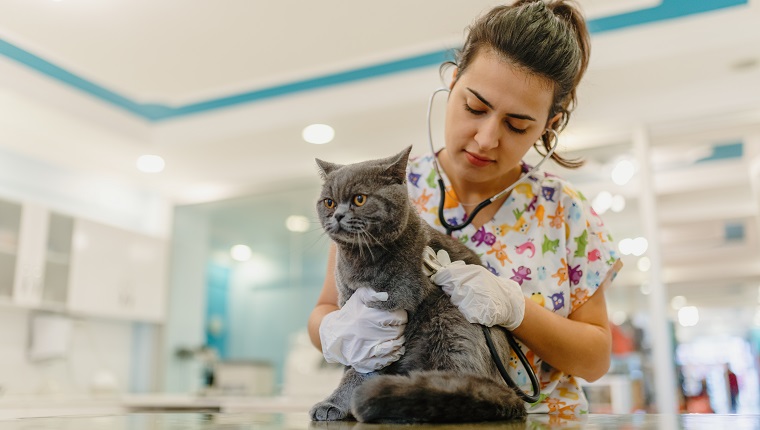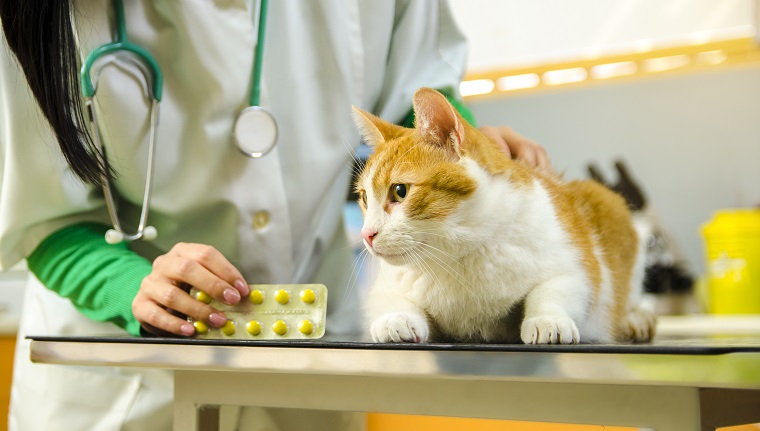Meloxicam for cats is a nonsteroidal anti-inflammatory (NSAID) medicine that veterinarians prescribe to treat issues related to joint inflammation and pain. It’s the generic name for a drug that’s also sold for use by humans under the brand name Mobic.
The drug works by reducing the hormones that can bring about inflammation and pain in a cat. It comes in injection or oral liquid form for cats and requires a veterinarian’s prescription to purchase.
You can easily order meloxicam online from Chewy’s pharmacy with your vet’s prescription. Closely follow any instructions for the correct and safe dosage and frequency.
Here’s what you should know about the uses, dosage, and side effects of meloxicam for cats.
Uses Of Meloxicam For Cats
Veterinarians generally prescribe meloxicam for cats is to treat pain and inflammation issues caused by musculoskeletal disorders, including osteoarthritis.
The mediation works by helping to reduce the influence of hormones that can result in pain for a cat.
Dosage Of Meloxicam For Cats

The following is a guideline for typical use of the drug in cats and must not replace your veterinarian’s advice for your individual pet.
Meloxicam for cats comes in the form of an injection or an oral liquid. For the oral form, veterinarians usually prescribe a dosage of between 0.01 and .045 mg per pound of the cat’s body weight administered once every 24 hours.
The vet may recommend a stronger initial dose followed by lower doses. It’s important to always follow the exact dosage and administration instructions as recommended by your vet. This also includes the length of time you should give the medicine to your cat.
Even if symptoms clear up early, it’s imperative that you finish administering the full course of medication to your cat unless your vet tells you to stop.
For the injection form, your veterinarian will determine the correct dosage, usually about 0.136 mg per pound of body weight, and will administer the injection themselves.
Side Effects Of Meloxicam For Cats
Meloxicam can produce side effects in cats, including vomiting, diarrhea, and a loss of appetite. In cases of cats with kidney issues, veterinarians generally recommend avoiding this medication.
If you suspect your cat took too much of the medication and is suffering from an overdose, then you must contact your emergency veterinarian right away.
Has your vet ever prescribed meloxicam to help your cat overcome joint pain issues? Did it help your cat recover? Then let us know in the comments section below!









